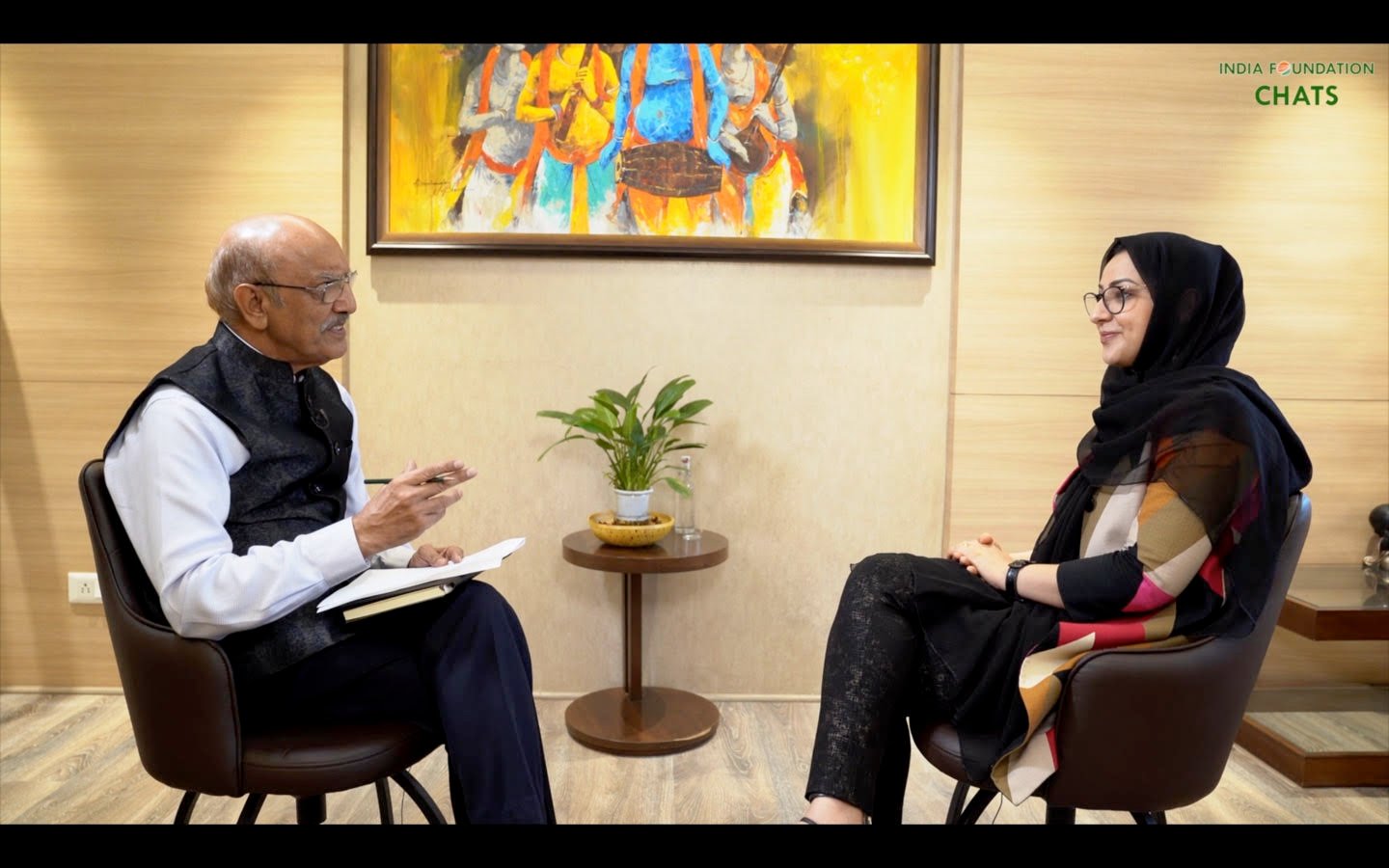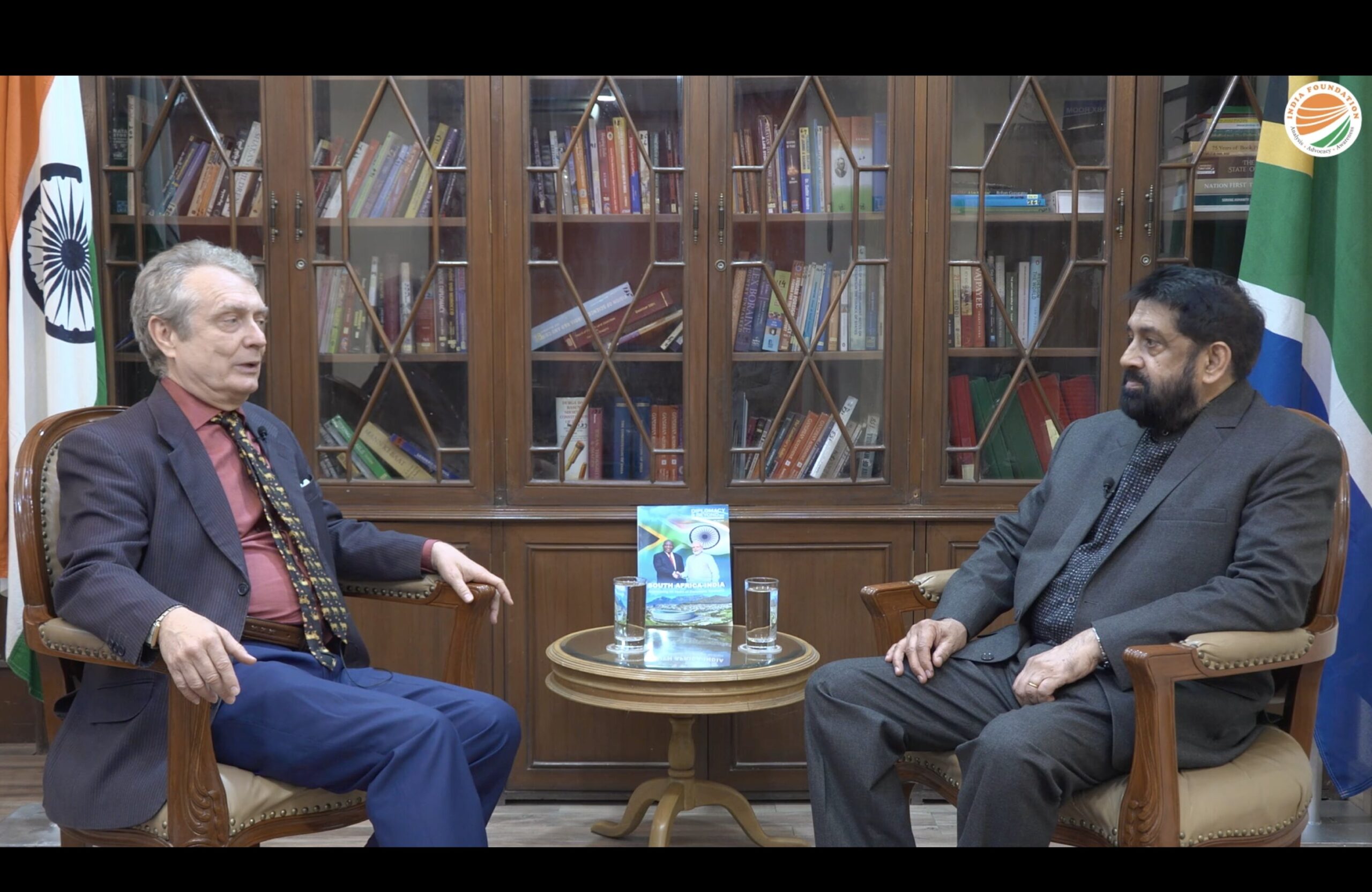Dhruv C Katoch
Afghanistan is going through perhaps one of the most critical phases in its history today. May 2021 was a bloody month in Afghanistan with the strife torn country getting more volatile and politically unstable. Taking advantage of the commencement of the final drawdown of the US-led international forces, the Taliban have intensified efforts to capture more areas with its ties with Al-Qaeda intact and the so-called Islamic State Khorasan Province acting in harmony with the Islamist forces. Within Afghanistan, political unity remains fragile. Most Afghans overwhelmingly want peace, but also want to preserve the current constitutional system that includes democracy, personal freedoms, a free media, and women’s rights. The Taliban have said little to reassure citizens that their views have changed from the extreme restrictions they brutally enforced in the 1990s.
As a Member of the Afghanistan Parliament, and as a woman who is holding a political and public office in an extraordinary complex conflict zone, what has been your experience, Ms Farid, of life in this extremely violent conflict zone.
Naheed A Farid
It is not just about my experience but the experience of the majority of women in Afghanistan. Afghanistan as a territory has been ranked as one that has been the most violated geography in the world. It has been ranked as the worst place for women, based on the global index of terrorism. Women in Afghanistan have great difficulty in accessing their basic needs and their basic rights. They have difficulty to work, to study outside their home, so forget about being in the public service or in Parliament, being a woman in that territory and in that society is difficult.
As a representative of the people in this society, I have the pleasure that I got elected in two elections, to represent the amazing people and the amazing women of Afghanistan who, within all this hardship, continued through life. They continued to shine in their country, continued to become engineers, doctors, ministers, pilots, cyber security experts —- we have women in all areas and they have been extraordinary. So, living in Afghanistan is difficult, but when you promise yourself that you will be the agent of change, and you promise yourself that you will make a difference in a society that needs you, then forget about the impediments and the barriers. You go forward, and I see the enthusiasm amongst my followers and my people. They back me, they support me and that gives me a lot of energy to move forward.
Dhruv C Katoch
You are a very young parliamentarian and so you have a direct connection with the youth of your country. How do you connect with the older generation of women and men in Afghanistan?
Naheed A Farid
Well, we have different missions. One of the missions is that we have to have the human rights backing in the very critical role that we have. We have to get connected to those who started the movement hundreds of years ago and who have since then, taken it forward. The Queen, the family of the Queen, the women rights activists that we have in the history of Afghanistan, the older generation which has good experience in the time of civil war; we have women who worked for women rights, not only in Afghanistan but also in Pakistan and Iran, they have worked in the camps of immigrants to help the women—imagine, we have that kind of women. In history, we have different players, we have to just get connected to the past, have a vision for the future and that is how we can move forward. We learn from the past, from the leaders in the past and also, I think, having new tools in our hand, the technology, the media, the new Constitution of Afghanistan which is very democratic, we can create a movement that can work in the future and bring the country to prosperity and make a difference.
Dhruv C Katoch
Many analysts who study Afghanistan are of the view that ideological differences will mar the formation of a government in Afghanistan and that sooner rather than later, the nation will slip into civil war. How do you see the peace process unfolding in the coming months?
Naheed A Farid
You know, the peace process that we have now is a multitude of challenges. One of the challenges is that the Taliban are not agreeing to the fundamentals of a negotiation to happen. For example, accepting the ceasefire, or reducing the levels of violence, that we have given as the pre-condition to start the peace talks. The government the Taliban wants, the Emirates of Taliban, will not be accepted by the people of Afghanistan. We refer to the Constitution on one side and the Taliban on the other side, but in the process, we forget the 30 million Afghan people; we forget 70 percent of the people who are the youth, we forget 50 percent of the people who are women, and these are the forces that will bring change in the future of the country, not the Taliban. We forget them and we just ignore them and we say that the Taliban wants an Islamic Emirate. And the ideology of Taliban, I believe, is just the cover. Taliban are the tools that are directed by state sponsored terrorism, that is backed by Pakistan, and other players that back Pakistan, to destabilise the country.
And forget about the ideology, do you remember the time when the Taliban said that they fight because they want to remove international forces from Afghanistan? But after signing the deal with the United States they said that they would continue fighting against the Afghan soldiers, but they would stop fighting against the US soldiers! If they had the ideology, that the jihad is a holy jihad against international forces, and the US forces, then why did it happen in an agreement. So, Taliban ideology is just a cover. Behind that, there is a group that is misused by Pakistan to destabilise Afghanistan, because Pakistan views Afghanistan as its strategic depth for them, and if the Taliban loses, then Pakistan also loses and if Taliban wins, then Pakistan also wins.
Dhruv C Katoch
Let me now ask you a theoretical question. If the Taliban were to actually take over the country, will the youth of Afghanistan actively resist them?
Naheed A Farid
If you conduct a poll today, then forget about the youth, a majority of the people of Afghanistan, regardless of age and gender, will oppose the Taliban. They do not want the country to go back into the darkness of the regime they had in Afghanistan. Because the experience they had of the rule of the Taliban, the suppression and the limitations they imposed on the people of Afghanistan has not been forgotten. So, even if the Taliban comes back to power, though I do not see that happening in my analysis, but even if that happens, they may take the power, but they cannot keep it. Because people do not like them; they are not popular; people do not love them. Yes, if there is a new government, it must keep the promise that besides the security of the people they will provide basic rights to the people of Afghanistan. Besides security, they must provide development, access to education, access to health, access to basic needs, basic rights, infrastructure, development—that is the government people will accept, even if the Taliban is promising that. But if the government of the Taliban were to bring backwardness and move back to the darkness of the Taliban regime, then that will not last and people will not accept it.
Dhruv C Katoch
Let us take another theoretical concept that the government of Afghanistan and the Taliban have agreed to work together. What are the compromises that each side will have to make to enable such a solution?
Naheed A Farid
I would think that there would be a division of power within the different powers of the Afghanistan state—the Legislature, the Executive and the Judiciary; so Taliban would certainly be interested in the judiciary system of Afghanistan to rule. Taliban would be interested in some Cabinet membership, they would be interested in having membership in Afghanistan’s Parliament, and that was a kind of proposal that was given by the Special Representative of the US, Mr Zalmay Khalilzad, with different options. I think that would be the face of the political settlement that we would have, if the Taliban and the government of Afghanistan, both agree. But how it actually works is another scenario and will depend on how Taliban keeps the promises, how Pakistan keeps the promises and how regional players will see themselves in that deal. That also is very important—who is going to make the Taliban accountable; who is going to implement the deal? Is there any government that is kind of an interim government that the parties agree to or not? These are the things that will take a long time to work on and to bring to action. A lot of effort is required and I think we have to see this, not just as an overnight activity but as a solution that keeps the process to happen.
Dhruv C Katoch
So, what you are suggesting is that it will take time and will evolve over a period of years. Now let us talk about gender issues. When we look into Afghan history, and see the photos of young Afghan women in the mid-1950s and beyond, it is quite apparent that women in Afghanistan were free and emancipated. That changed during the Taliban rule, and we witnessed the total suppression of women. What are the concerns of women in the peace process and are they being appropriately voiced? Will the Taliban be able to suppress women in the present times as they did in the 1990s.
Naheed A Farid
Let me give you an example. The baby girl that was born in 2001, is 20 years old now. She has lived in a totally different situation and like me, she does not have the experience of living under Taliban oppression. That baby girl is the majority now. And bringing that generation back to the darkness of the Taliban, will not be acceptable to them. And if they do not accept, then we just cannot ignore them. They are not just one or two or three people, they are the majority and they are the present reality of the country. Even if the Taliban comes to power, they have to accept the new reality, they have to accept the new generation.
Under the Constitution, Afghanistan, is an Islamic country. Nothing in Afghanistan can happen against Islam. The legal process is based on Islam, Islamic procedures are based on Islam, everything is based on Islam. We all are practising co-existence that exists in Islam. And if Taliban are having their own interpretation of Islam, they are free to do so, but we are not buying it. The new Afghanistan cannot be the Afghanistan that they want to create in terms of their interpretation of Islam. Daesh also says that there is an Islam that they interpret, but who is buying it? That is the issue that is very important to understand. Based on the kind of picture that the Taliban have, we should not fit such a big history and country—a country with so much pride, into the interpretation of Islam that the Taliban have.
Dhruv C Katoch
Basically, what you are stating is that despite the fact that the Taliban have the guns, and assuming that they do manage to come into power, they will not be able to enforce their diktat on the women. Is that what you are stating and will there be resistance, should they attempt to do so?
Naheed A Farid
When the Taliban join the peace process, they will have to put down their guns. If they want to continue to fight, then we will fight. If Taliban thinks they can capture the country by force, then we can also fight against them. The Afghanistan Army is a very capable army, both in numbers and in ability and capability, we are bigger and better than the Taliban. So we will fight. It is upto the Taliban to choose—come to a compromise solution or continue the bloody war.
Dhruv C Katoch
Getting back to the Afghan National Security Forces, I agree that they are capable and can take on the Taliban as they have been doing since the last few years. But there will be a problem when it comes to financing the security forces. Do you think aid from the US and the West will continue in the quantum required, to enable the Afghan government to maintain the forces at their current equipment and manning levels, post the drawdown of US and coalition forces?
Naheed A Farid
The state of the Afghan economy is obviously not adequate to maintain such large security forces. That is why our international allies, including the United States, have given the assurance that financing of the security forces will continue, to maintain the forces at their current level. So, from that point of view, Afghanistan does not have any concerns. Concerns that I have as a Member of Parliament and a representative of the people, is ensuring that the Afghan Army remains strong and capable. We must back the Afghan Army, support them, and keep them in a state of high morale. How do we give them enough equipment, enough intelligence? The Afghan army is the most faithful ally of the values we uphold in the country and also of the values that countries like India uphold, because they are fighting against international terrorism and terrorist groups such as the al Qaeda, which also threaten your values, your souls as Indians. So, the Afghan National Security Forces are the most faithful ally of the Afghan people, of India and of the United States, as they are fighting for the same values against international terrorism.
We need to see that they get the support that is required to combat the forces that are engaged in terrorism and which can destabilise the country and the region. The Afghan Security Forces are most patriotic and they are fighting in very difficult areas. We are backing them fully and are very proud of them. We must see that they are given the wherewithal to enable them to fight and defeat terror groups and organisations.
Dhruv C Katoch
Now, let us come to the role of some of the international players in Afghanistan. How do you see the role of Pakistan and China in influencing the peace process and the role they are likely to play post the drawdown of US forces?
Naheed A Farid
There is no doubt that Afghanistan is experiencing a proxy war because we have different external intelligence groups that are backing different groups of insurgent groups in the country. But the biggest of such groups is the Taliban which is being supported by Pakistan and they continue with their acts of destruction, to destroy the new Afghanistan. In this process, China is backing Pakistan. Unfortunately, neither Pakistan nor China have played a constructive role in Afghanistan in assisting with the development of the country. This is very unfortunate as a destabilised Afghanistan or a destroyed Afghanistan is not in the interest of either China or Pakistan. But they have a short-sighted policy. If all the regional players play a constructive role, that can bring a lot of prosperity to Afghanistan which will in turn benefit China and Pakistan. With better road projects, the silk road project which is the traditional route and the best and shortest route to connect to the the Central Asian Republics and to Europe—will benefit China and Pakistan and this passes through Afghanistan. It is unfortunate that the policies followed by Pakistan are jeopardising not just the future of Afghanistan but also of all the countries in the region.
Dhruv C Katoch
Now to my final question. What are the expectations of the people of Afghanistan from India after the withdrawal of US forces from Afghanistan in September this year?
Naheed A Farid
Post the withdrawal, there would be a different situation and I think there would be more room to have collaboration with our friends, including India. India is the largest democracy of the world and we are expecting India to back Afghanistan’s democracy. India is also the largest donor to Afghanistan’s development effort. We would need India’s assistance in rebuilding Afghanistan, so that we can have more infrastructure, more jobs, more schools, more human resources to rebuild Afghanistan. From the perspective of the military, Afghanistan’s security forces would need India’s help in intelligence, in supplying military equipment and building air bases. Most importantly, I think we need India’s diplomacy to help Afghanistan. India can change the narrative. The narrative today is that Afghanistan is a war-torn country, with people who are in need. We can change that narrative to a different and more positive one—that Afghanistan is a country with a long civilisational history, very capable people, and Taliban cannot destroy the face and the history of the country. They cannot destroy the women, the youth, the new generation and the defenders of democracy. In the world, we have to bring forth this new narrative, that Afghanistan is a strong Afghanistan and has supporters like India which is helping Afghanistan to move towards prosperity.
Brief Bios: Ms. Naheed A. Farid is a Member of Afghanistan Parliament and Chair of House Women Affairs Commission and Maj. Gen. Dhruv C. Katoch is Editor, India Foundation Journal and Director, India Foundation.





